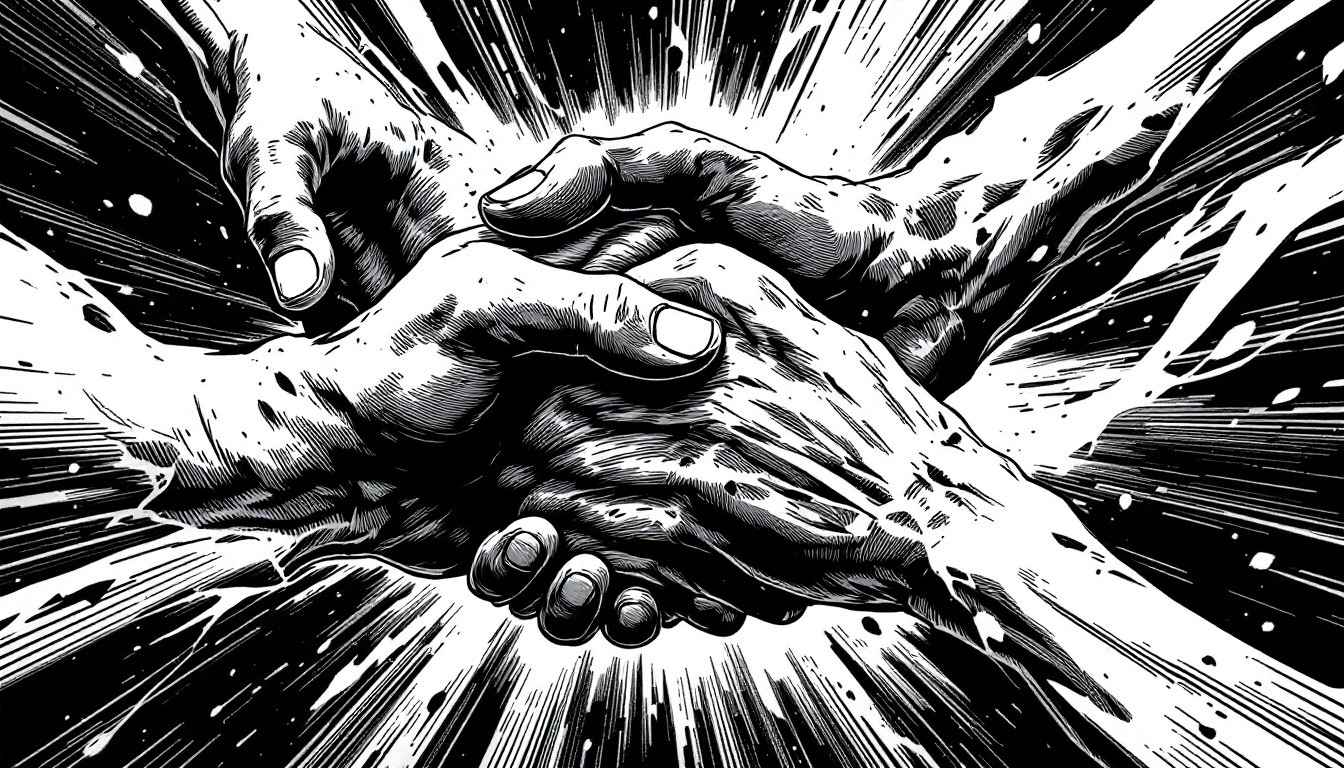
Many men ask me how coaching actually helps—and what it’s really like to face change when you feel stuck. Toward the end of this article, I share a piece of my own story—because I believe lived experience speaks louder than theory. If you’ve ever felt overwhelmed by the climb ahead, keep reading.🧠
⛰️ Standing at the Base of the Mountain
Recognising the mountain is a courageous act in itself. Many men never admit—either to themselves or others—that something needs to change. They carry on as if the terrain is flat, even as their internal world becomes heavier with every step.
So if you’ve seen the mountain—if you've acknowledged that something in your life is out of alignment—then you’ve already taken the first brave step. Even if you're stuck right now, even if you haven’t moved yet, that recognition is powerful. It’s the start of every meaningful climb. Have you ever looked at your life and felt completely overwhelmed by the change you know needs to happen?
You might know something is off—whether it’s your career, your marriage, your motivation, or your sense of purpose—but the sheer size of the shift required leaves you frozen. Sometimes, it’s not just the scale that intimidates—it’s the uncertainty. The mountain is often shrouded in cloud, its path unclear. You may not even know how far it goes or what the next steps look like, only that something big stands between you and the life you’re meant to live. It’s like standing at the base of a mountain with no clear path, no guide, and no belief that you can make the climb.
This is where many men find themselves in midlife. They’ve achieved a version of success, but feel increasingly misaligned with the life they’ve built. And when they finally realise that something needs to change... they don’t know where to begin.
🧑💼 The Weight of Doing It Alone
Most men I coach have spent their entire lives believing they need to figure things out on their own. It’s a message we’ve internalised since boyhood: real men don’t ask for help.
But here’s the truth: this mindset isn’t noble—it’s exhausting. And more than that, it’s limiting. It not only holds the man back—it also impacts those around him. When a man is stuck in silence or avoidance, his loved ones feel the disconnect. His team at work notices the hesitance. His partner senses the emotional distance. The cost isn’t isolated—it’s relational, emotional, and sometimes generational.
Trying to navigate major life change alone can lead to stagnation, burnout, and quiet despair. You stay at the base of the mountain, staring at the summit, not because you’re lazy—but because no one ever taught you how to climb it with someone beside you—like a Sherpa on Everest, a guide who knows how to navigate the climb, adjust the pace, and encourage you when you falter.
🧭 Coaching as a Guide: What It Unlocks
Coaching doesn’t make the mountain smaller—but it can make the climb more achievable. The climb is possible without a coach—some make it on their own. But for others, the support of a coach offers something valuable: insight, perspective, and encouragement at critical moments. Not to carry you, but to help you move forward with greater clarity and confidence.
Here’s what a skilled coach helps unlock:
🔍 Clarity – Identifying what truly matters, sorting signal from noise.
📈 Confidence – Helping you recognise hidden thought patterns that may be holding you back—even ones you don’t realise are there. These beliefs often operate quietly in the background, shaping decisions and feeding self-doubt. A coach helps bring these into the light and replaces hesitation with healthy momentum. 📆 Accountability – Someone walking beside you, keeping you on track.
🔮 Strategy – Turning abstract desire into concrete, aligned action.
A coach isn’t there to rescue you. They don’t carry you—but they walk with you, attuned to your pace, your terrain, and your strength. Their role is to help you remember your own capability—and guide you to use it with purpose.
🔄 The Shift in Identity: Becoming Your Own Climber
Perhaps the biggest change isn’t what you do—it’s who you become.
Coaching helps men move from:
This shift may not come with applause or summit flags—but it changes everything. Eventually, the Sherpa steps back, and you continue the climb stronger, clearer, and more aligned than ever before.
🧠 My Own Mountain
Before we wrap up, I want to share a part of my own journey—because sometimes the most powerful perspective comes from lived experience. If you've been wondering whether you're the only one feeling stuck or unsure, this next section is for you.
My mountains came into view around 2019—and they didn’t appear one at a time. It was more like a mountain range: challenges in work, personal relationships, habits I wasn’t proud of, and the creeping reality that my body could no longer do what it once had. I was also facing down the weight of imposter syndrome, struggling with a version of success that no longer aligned with how I felt inside.
I’ll admit, I dipped into a mild state of depression—until I found the courage to reach out for support. For me, that came in the form of a coach and members of my faith community. They became my Sherpas—not fixing the climb, but walking with me. They helped me find perspective, encouraged me to take just the next step, and reminded me not to obsess over the summit.
I learned to appreciate the view from where I was—even if it wasn’t the peak. I began to take in what each phase of the climb had to offer: the pain of growth, yes, but also the beauty of becoming.
Am I at the summit? No. And to be honest, I’ve come to love the climb so much that I don’t want the process to end. I’m at peace with the man who is emerging—still a work in progress, but no longer stuck. And when I stumble or lose my bearings, my Sherpa is there—supporting, encouraging, and guiding me back to my path.
I know this journey, because I’ve taken it myself—and I’m still on it. I share that story not to centre myself, but to let you know you are not alone. The first step isn’t easy—but it’s powerful.
💬 Let’s Talk About the Mountain
You don’t have to stay stuck staring at the summit. The climb begins with a conversation.
🚀 If this resonates, let’s connect for an obligation-free chat.
📢 If you know someone silently facing their own mountain, share this with them. Let’s normalise these conversations—seeking support isn’t weakness; it’s wisdom.
📷 StockCake

In many teams, conflict is viewed as threatening and destructive — something to be avoided, managed, or silenced. After all, “good” teams get along, right?
Not quite.
In truth, the absence of conflict often signals something far more dangerous than disagreement: conformity.
When a team goes out of its way to avoid tension, it’s often a sign that honesty, innovation, and accountability are quietly being sacrificed. People nod in agreement, but they don’t truly buy in. Decisions are made, but the best ideas stay hidden. Progress appears smooth on the surface, but under the waterline, frustration and disengagement start to build.
What do the best teams do differently?
They engage in healthy conflict — robust, respectful conversations where diverse views are welcomed, hard truths are spoken, and assumptions are challenged. Not for the sake of drama, but for the sake of growth. These teams have the psychological safety to speak up and the relational maturity to stay united while disagreeing.
This requires emotional intelligence across the board. Each team member must be self-aware enough to manage their emotions, curious enough to understand others' — and willing to allow their own perspective to evolve in light of new insight.
Healthy conflict is never personal — it’s about addressing the issue, not attacking the person. As Patrick Lencioni emphasises in The Five Dysfunctions of a Team, fear of conflict is one of the key barriers to team performance, and overcoming it is essential to build real trust and commitment.
A 2017 study published in the Journal of Organizational Behavior found that teams able to engage in task conflict — where differing ideas are debated respectfully — often outperform those that avoid it. The key distinction? They separate the issue from the individual, recognising that it’s not about ego or being right — it’s about the greater good and identifying the best solutions for the collective and the system.
They understand that cohesion doesn’t mean uniformity — it means alignment, forged through tension, not in spite of it. And they know that consensus isn’t always necessary for high performance. What matters is that every voice is heard and genuinely acknowledged, even when the final decision doesn’t reflect everyone’s individual view. This distinction between inclusion and consensus is critical — and often misunderstood.
👀 If you’re part of a team that rarely disagrees or struggles to decide, it’s worth asking:
Constant agreement isn’t always a virtue. Sometimes it’s a sign that important perspectives are being withheld.
💭 Want to help your team navigate conflict in a way that builds unity and performance?
I offer a team coaching process and solutions that help teams engage honestly, build trust, and execute in alignment and improve performance.
📩 DM me for an obligation-free chat.
🔁 Or share this post with a colleague who needs to hear it.
Let’s normalise the conversations teams have been conditioned to avoid.
For years, I looked successful on the outside - but inside, I questioned whether I was truly enough. Like many men, I carried the weight of self-doubt, imposter syndrome, and the quiet fear that one day, I’d be ‘found out.’
Yet, here’s what I’ve learned: self-doubt is not permanent. It is possible to move beyond it and into a life of confidence, purpose, and deep fulfilment. This is what changed for me when I finally saw myself as enough.
✅ Leadership: Avoiding risks, hesitating to speak up, or feeling undeserving of success.
✅ Relationships: Struggling to be fully present, fearing vulnerability, or keeping people at a distance.
✅ Personal Fulfilment: Constantly seeking external validation or feeling like an imposter despite achievements.
I can trace my self-doubt back to childhood—always feeling like I had to prove my worth and striving to be ‘good enough’ in the eyes of others. That drive carried into adulthood, where I learned that hard work and overachievement could mask my feelings of inadequacy.
As I climbed the corporate ladder, I wore success like a suit of armour. But beneath it, I still doubted myself. Every promotion, every accolade felt like a temporary shield against the fear that I wasn’t truly deserving. And the weight of that performance took its toll.
I became exhausted by the act of ‘holding it all together,’ avoiding situations where my so-called weaknesses might be exposed. Deep down, I feared that if people really saw me, they would realise I wasn’t who they thought I was.
Then came the moment of reckoning—the day I finally acknowledged the truth: I was measuring my worth by the wrong standards. Self-worth isn’t earned through external success - it’s built from within. And that realisation changed everything.
✅ Clarity & Inner Peace – Finally being comfortable in my own skin and finding my voice.
✅ Authenticity in Leadership & Relationships – No longer hiding behind perfectionism or people-pleasing.
✅ Energy & Purpose – Moving from self-doubt to self-assurance, fully stepping into my purpose.
Self-worth is not about external success - it’s about how you see yourself. The journey isn’t easy - it’s layered and often requires unlearning deep-rooted beliefs about ourselves - but it is possible, and it is worth it.
I share my story because this struggle is more common than you think. If you're feeling something similar, know this: You are not alone - and most importantly, it does not have to define you.
🚀 If this resonates, let’s connect for an obligation-free chat.
📢 If you know someone who needs to hear this, share this with them. Let’s normalise these conversations - seeking confidence isn’t weak; it’s essential.
#SelfWorth #MensMentalHealth #LeadershipGrowth #MidlifeReinvention #ConfidenceMatters
